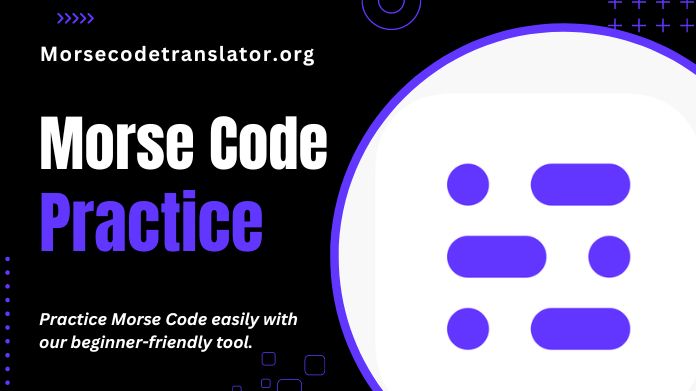Morse code, with its rich history and timeless significance, remains a captivating form of communication. For beginners eager to delve into this intricate language of dots and dashes, embarking on simple Morse code practice sessions is the perfect starting point. This introduction to Morse code practice offers an accessible gateway for novices to explore the fundamentals of this fascinating communication method.
This guide will provide beginner-friendly exercises and resources designed to build Morse code proficiency gradually. From learning the basic alphabet to mastering common phrases, this practice regimen aims to instill confidence and fluency in Morse code communication.
Whether for personal enrichment, amateur radio pursuits, or historical appreciation, honing Morse code skills opens doors to intriguing possibilities. Join us on this journey as we unravel the mysteries of Morse code and embark on an enriching practice regimen tailored for beginners.
Let’s dive into the world of dots, dashes, and meaningful communication, one Morse code practice session at a time.
What is Morse Code?
Morse code encodes text characters as sequences of two different signal durations, typically represented by dots and dashes, or more formally, short and long pulses of sound, light, or other signals. It was invented by Samuel Morse and Alfred Vail in the early 1830s for use with the telegraph, enabling messages to be transmitted electronically over long distances via telegraph lines.
Each character in Morse code is represented by a unique combination of dots and dashes, with shorter signals denoting dots and longer ones representing dashes. These combinations form a universal code that can be understood by trained operators regardless of language barriers or technological limitations.
Morse code has been used extensively in various fields, including maritime and aviation communication, military signaling, amateur radio, and even to encode secret messages during wartime. Despite technological advancements, Morse code remains relevant today and continues to be taught and used by enthusiasts worldwide.
Morse Code Practice for Beginners

Morse code practice for beginners is essential for mastering this timeless communication method. Learning Morse code involves familiarizing oneself with the sequence of dots and dashes representing each letter, number, and punctuation mark.
Here’s a beginner-friendly guide to Morse code practice:
1. Learn the Morse code alphabet: Start by memorizing the Morse code equivalents for each letter of the alphabet, numbers from 0 to 9, and common punctuation marks.
2. Practice decoding: Use online resources, apps, or flashcards to practice decoding Morse code messages. Start with simple exercises and gradually increase the complexity as you become more proficient.
3. Use mnemonic devices: Mnemonics can help you remember Morse code sequences more easily. Create your mnemonics or use existing ones to associate dots and dashes with letters or words.
4. Build speed and accuracy: Practice regularly to improve your speed and accuracy in decoding Morse code. Set achievable goals and track your progress over time.
5. Apply Morse code in real-life scenarios: Test your skills by practicing Morse code communication with fellow enthusiasts or participating in amateur radio activities.
By following these steps and staying consistent with your practice, you’ll gradually become more proficient in Morse code and unlock its potential for effective communication.
Conclusion
Morse code practice for beginners is essential in mastering this timeless communication method. Learners can gradually improve their proficiency in sending and receiving Morse code messages by diligently working through exercises, drills, and interactive resources.
Consistent practice helps develop speed and accuracy, enabling individuals to effectively communicate using Morse code in various situations, from amateur radio operations to emergency communication scenarios.
Additionally, Morse code practice fosters problem-solving skills, mental agility, and resilience as learners overcome challenges and strive to improve their Morse code proficiency.
With dedication and perseverance, beginners can progress from simple Morse code practice to confidently using Morse code as a reliable means of communication.
